Features
Tales from Telltale: A Telltale Games Retrospective
The shutting down of Telltale Games was heartbreaking to watch unfold, and not just because so many incredibly talented people were out of a job, but because many of us here at Goomba Stomp have spent a fair amount of time playing many of the studio’s games over the past decade or so.
With the recent news that the company is being revived, we’ve decided to re-run this article which looks back at a few of the games that we have fond memories playing. Let us know which Telltale game is your favourite and feel free to share any other thoughts, memories and general feedback in the comments below.
****

Batman: The Telltale Series
One of the biggest properties that Telltale ever had the good fortune of procuring also led to one of their best franchises. What set Batman: The Telltale Series apart from other Telltale games was its focus on tactical takedowns of enemies, and a QTE system that really fit with the Caped Crusader and his bag of tricks.
However, what really made Batman: The Telltale Series stand out was how it revamped the Batman mythos for its own purposes. Drawing inspiration from a wide range of sources (including Batman: The Animated Series, Batman v Superman, The Dark Knight and The Long Halloween) Telltale’s take on the World’s Greatest Detective still managed to have its own unique voice.
Putting a heavier focus on Bruce Wayne allowed the game to have a different kind of storytelling, and the ways which the game re-wrote the history of the Dark Knight were truly shocking. One need only look at how classic characters like Thomas Wayne and Vicki Vale were dynamically retooled for this story to see the kind of brass balls on the writers of Telltale’s Batman series.
Introducing a compelling new villain, while offering vastly different takes on Batman’s classic rogue’s gallery, Batman: The Telltale Series is a wonderfully fresh take on a character who has been around for eight decades, and it belongs well within the company of great Batman stories. (Mike Worby)
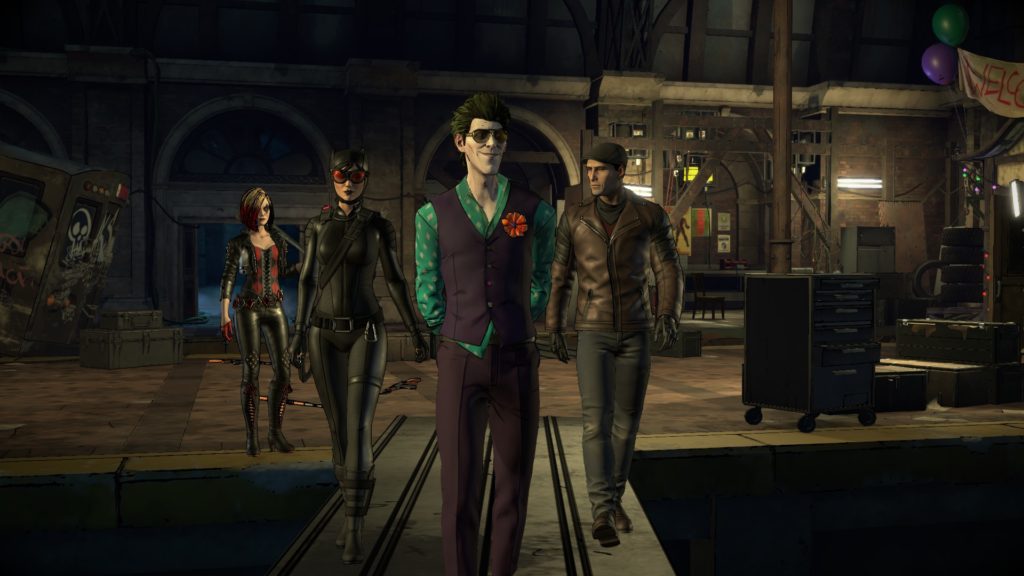
Batman: The Enemy Within
If Batman: The Telltale Series was Telltale’s attempt at putting their own unique spin on Bob Kane and Bill Finger’s Caped Crusader, then Batman: The Enemy Within was where they doubled down on their vision of Gotham City’s unique cast of characters.
The Enemy Within isn’t just one of Telltale’s best games, it’s also one of the best Batman stories in years. Focusing on Bruce Wayne’s attempts at infiltrating an international cabal of villains known as The Pact. This boldly dynamic tale introduces plenty of new blood into Telltale’s Batman universe, including fresh takes on Harley Quinn, the Riddler, Amanda Wallace, and most importantly: The Joker.
A character who has truly been done to death over the last decade, managing a fresh approach to the Joker seems like something of an impossibility in 2018. Yet Telltale truly pulled off a masterful new Joker in The Enemy Within by allowing you to shape the madman as he soul-searched for his purpose in the world. Treating him like the unstable creature he is would lead to something like the classic Joker we’ve all come to know and loathe but for players that tried to steer him away from his villainous path, a daring new version of the Joker was waiting to be unveiled.
Featuring 2 completely different scenarios for the final episode based entirely on how you handled the Joker, The Enemy Within is a compelling and shocking take on the Batman mythology, and easily one of the best games Telltale ever crafted. One of the greatest tragedies of the studio’s closure is that we won’t get to see any more games set in their brilliant vision of Gotham City. (Mike Worby)
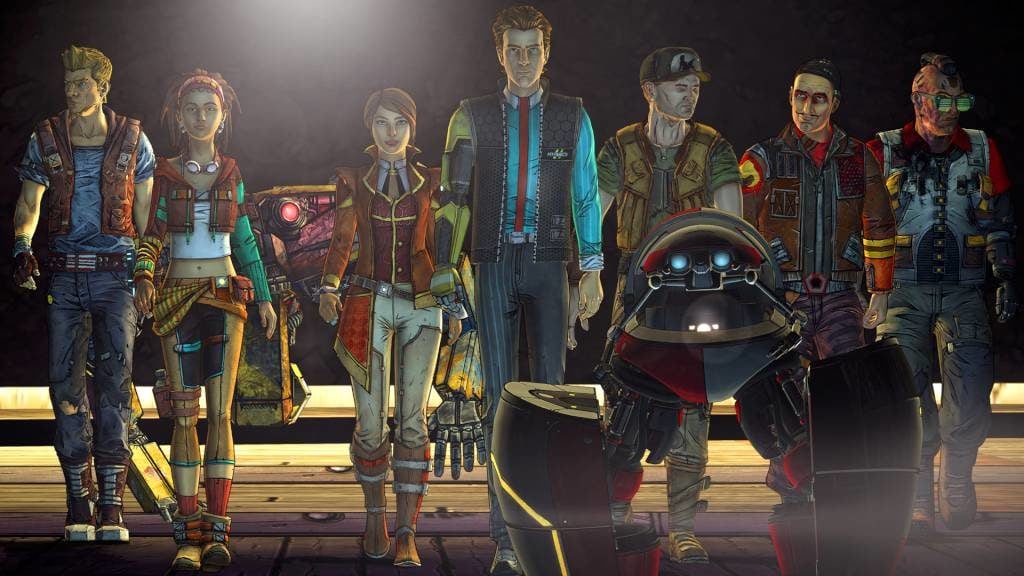
Tales From The Borderlands
It’s hard to imagine anybody could have had high hopes for Tales From The Borderlands prior to release. A mash-up of Telltale’s patented narrative focused adventures and co-operative, loot-grind first-person shooter series Borderlands? I was a big fan of the work Telltale had done with their previous titles since The Walking Dead, but this one seemed destined to disappoint from the moment it was announced. What’s so surprising about Tales From The Borderlands is not that it didn’t bomb, but that it just might be some of Telltale’s finest work. The game throws together a rag-tag band of anti-heroes and ne’er-do-wells who – largely for reasons pertaining to fortune, glory, or survival – must unite to take on common foes, and maybe, just maybe, learn some valuable life lessons along the way. The cast is quickly likable and the writing is sharp with the sort of back and forth witty banter you’d expect from a movie like Guardians of the Galaxy. The story begins in medias res, with two of our heroes being held captive by a masked kidnapper, and each offers input into how they wound up in the pickle they’re in. This narrative style allows Telltale an opportunity to subvert their trademark tough, morally ambiguous decision-making style, and instead play the choices for laughs as the two leads remember the events of their tale very differently, each blaming the other for what went wrong. What starts as a charming but silly and disposable yarn transforms throughout the series into a genuinely interesting tale with a strong emotional core as the cast begin to trust one another and reveal hidden depths to their characters. The apex is probably episode four, which delights from start to finish, from an outrageous opening title sequence to a heroic sacrifice and ultimately the greatest QTE in Telltale history – it hits all the right notes, and proves that Telltale couldn’t just make you cry but could have you laughing out loud as well. (John Cal McCormick)

The Walking Dead: Season 2
The Walking Dead: Season 2 was about Clementine finding her way on her own. The player questions who Clementine is while growing up with her hero gone and her future changing rapidly every day. She’s alone now, and even though Lee taught her to care for others, the second season dares to teach Clem, and the player, that the only person to save is yourself.
Clementine, with her new set of survivors, has to figure this out on her own, and she and the player’s hand is forced to make some harrowing and challenging decisions. Telltale was most successful in getting players to challenge their beliefs, morals, or the choices they ultimately make. The brilliant mechanic of only having an allotted time to make that choice gives the player no thought process, only gut reactions.
Telltale creates in Walking Dead an inescapable and hardening truth that conventional morals have no room within a zombie apocalypse. While Season 1 provided relatively clear-cut decisions, Season 2 challenged that by reminding the player over and over again that you cannot save anyone besides yourself. That’s a lot for a little girl growing up in an extremely unsafe world. It’s clear that Clem didn’t know, or neither did the player, of who she really is outside of Lee.
The core of this particular game is patience, peacefulness, and conversation. Even though the hellhole has only deepened, Season 2 is about finding those moments of quiet and how to talk to each other, rather than just life or death decisions. (Katrina Lind)
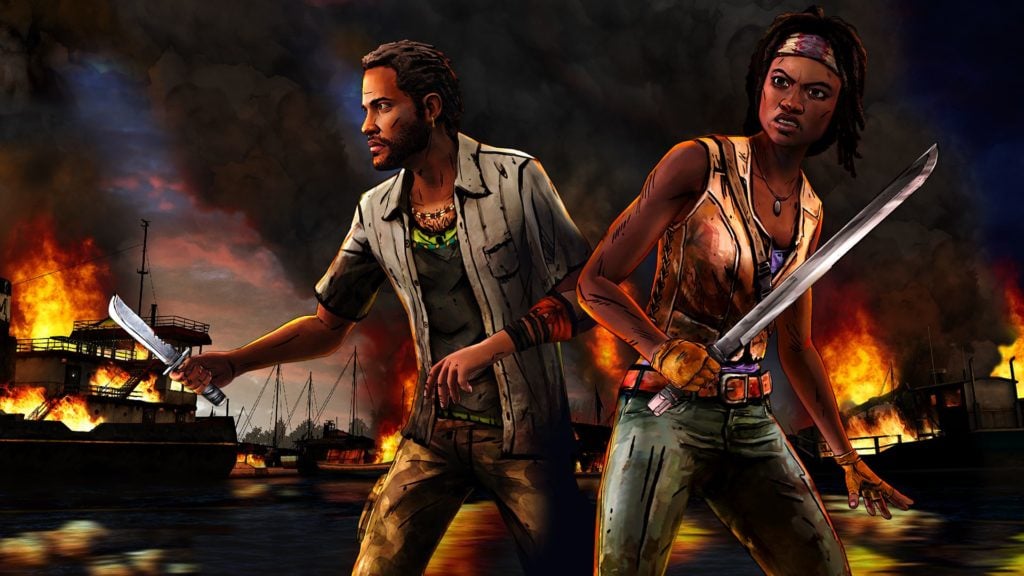
The Walking Dead: Michonne
Telltale means a lot to me. Not just because it’s games are good, but because it’s games have had such a big role in shaping my life over the last few years. The first Telltale game I played was The Walking Dead: Season 1. I was in high school at the time, had just recently begun listening to Podcast Beyond and was in the middle of my second to last year of exams.
It was the point in my life where I moved beyond just playing games and actually became invested in the greater industry around them. I hadn’t heard of Telltale’s The Walking Dead until Greg Miller spoke about it on Beyond. It wasn’t available on consoles in New Zealand at the time, so I started playing it on my iPad. I had no idea how important that game would be to me. It was emotional, riveting and the first game to ever make me cry. From that day forward I’ve regarded it as one of my favourite games of all time, viewed the opinions of Greg Miller crucial to finding new games and thought for the first time that games might be able to tell better stories than movies.
I loved their follow up projects like The Wolf Among Us and Tales From the Borderlands, reviewed Batman: Season 1 and Guardians of the Galaxy during my time as a game reviewer and wrote countless news articles in the lead up to A New Frontier. However, there is one Telltale game very close to me, that I’ve never spoken about.
For the last few years, I’ve struggled with mental illness. When I was first diagnosed I found it hard to understand my condition and find appropriate representations of it in media. I wanted to feel I was understood, that I wasn’t alone in this. Then I found The Walking Dead: Michonne. It’s a spin-off title, three episodes long and released between seasons 2 and 3 of Telltale’s ongoing series.
Most push Michonne aside for not progressing The Walking Dead formula further, viewing it as a bland derivative of the past games. I saw another character who’s inner struggles were eating them alive. I saw a story of someone who appeared strong in front of others, but weak and vulnerable when alone. It was a powerful message to me at the time. Even the strongest of us can be tortured by invisible demons. The Walking Dead: Season 1 meant a lot to many people. The Walking Dead: Michonne meant a tremendous amount to me despite being panned by others. Not every game needs to connect with everyone, one person is enough. So it’s saddening to know that both I and others won’t continue having experiences like this in the future. (Chris Bowring)
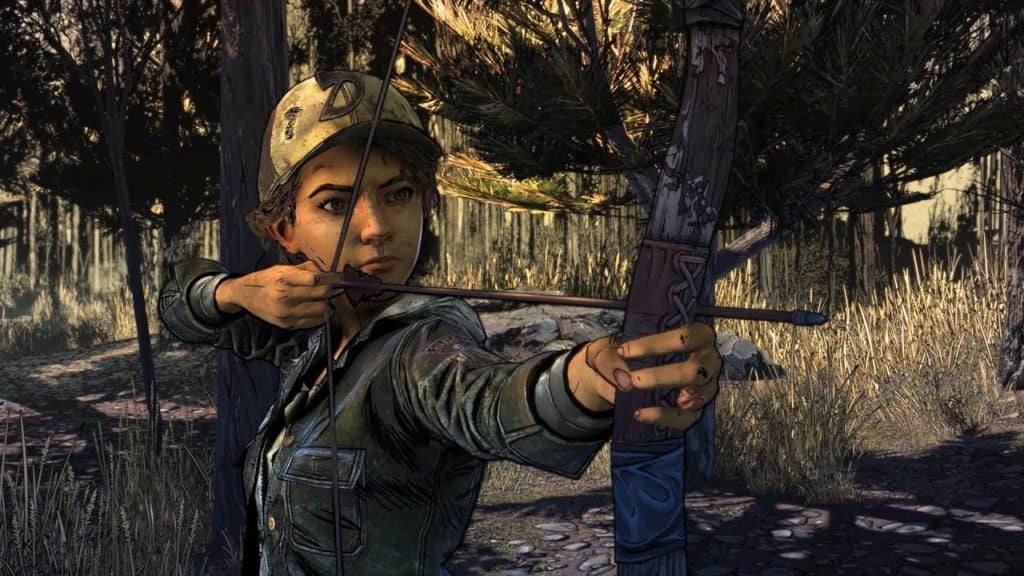
The Walking Dead: The Final Season
As I have been very fervently pointing out over the last month The Walking Dead: The Final Season is already among Telltale’s finest work, even as a half finished game. The bummer of it all is that it might remain that way.
As most reviews have pointed out, the new engine that runs The Final Season is just the breath of fresh air that Telltale needed to reinvigorate their formula. Things like totally free control of the camera with the right analog stick and a more strategic combat system are the precise things that Telltale needed to bring their gameplay back up to snuff with their already solid storytelling.
With these improvements The Walking Dead: The Final Season is poised to be a contender with the very best of Telltale’s games. It’s really too bad that the timing couldn’t be worse for them. Imagining a Wolf Among Us sequel or a Stranger Things game running on this engine is enough to really get a fan excited.
Will Telltale find a partner to help them finish the game or will Clementine’s journey go unfinished this close to its conclusion? I guess we’ll just have and see, won’t we? (Mike Worby)
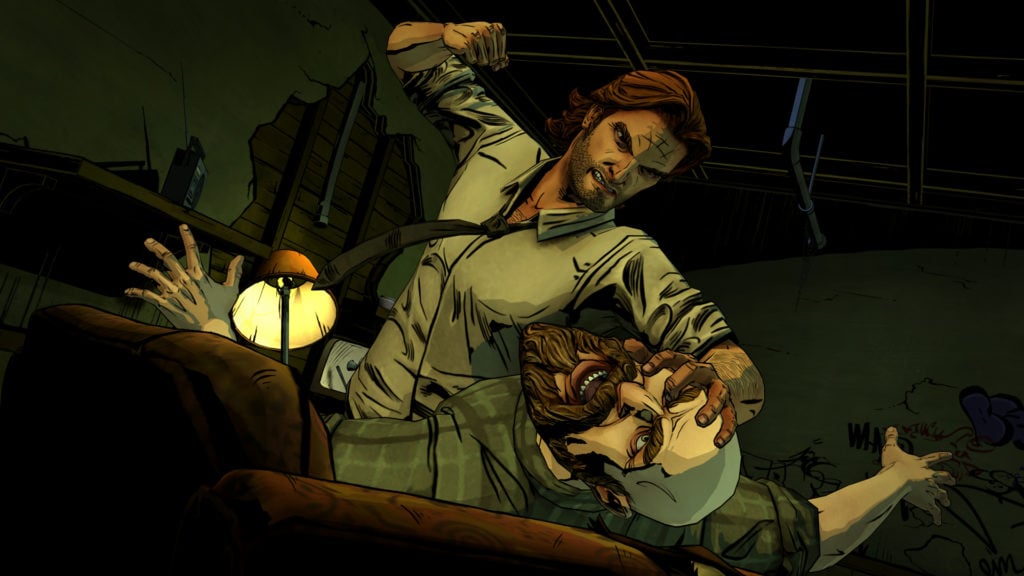
The Wolf Among Us
After a decade perfecting a formula that mimicked television and turned video games into a series of episodes, Telltale followed up their smash hit The Walking Dead with an episodic prequel of another famous graphic novel – Bill Willingham’s comic series Fables. Taking place in the fictional New York City in 1986 (nearly 20 years before the events of the comic), Telltale’s neo-noir crime drama centers on Bigby Wolf, the sheriff of Fabletown who sets out to hopefully solve a murder mystery before the killer strikes again.
Of the two dozen or so games Telltale created since the studio was founded on October 4, 2004, The Wolf Among Us may just be the very best – a smart, stylized whodunit that is both sobering and thrilling, and sometimes, magical.
There’s a lot to love about The Wolf Among Us, from the gorgeous neon, cel-shaded graphics that blend splashes of bright color with the muddy palette of the classic film noir to the large cast of eccentric mythical characters – but what stood out the most for me is how The Wolf Among Us took inspiration from The Blue Dahlia, one of the most overlooked and under-rated film noirs written by the great Raymond Chandler. Like The Blue Dahlia, The Wolf Among Us interweaves a tangled plot centered on the death of a woman, a wrongly accused man, and a range of possible suspects while addressing issues of neighborhood class struggles. In other words, The Wolf Among Us is less a story of what these legends and folklore figures would do in the real world and more a dark detective story that puts us in the head of the Big Bad Wolf and forces us to makes decisions that will ultimately have a great impact on the lives of everyone he meets along the way.
In keeping with the structure of a compelling whodunnit, each episode unfolds at a steady pace while scattering clues, yet never giving too much away. It’s basically a Raymond Chandler nursery rhyme that paves out a fascinating detective story and an even more fascinating gumshoe who spends his time meticulously pawing through evidence, trying to decipher how it all relates to the crime at large. The setup works mainly because Bigby is such an intriguing character – and the more he investigates, the tougher his choices (and yours) become as he explores the seedy dark underbelly of his hometown. And when things get really bad, it takes a toll on him mentally and physically, as he transforms into an actual wolf.
The season’s final episode, “Cry Wolf” (which the Internet was falling over itself trying to understand) makes the entire journey well worth your time as it culminates in a swirl of revelations that left many people baffled and confused. If The Walking Dead was Telltale’s tear-jerker, The Wolf Among Us is the studio’s head-scratcher, a rare game that left me with a lot to think about, long after the credits rolled. (Ricky D)

-

 Features4 weeks ago
Features4 weeks agoGet Ready: A Top Isekai Anime from the 2020s Is Headed to Hulu!
-

 Features4 weeks ago
Features4 weeks agoSocial Gaming Venues and the Gamification of Leisure – A New Era of Play
-

 Features3 weeks ago
Features3 weeks agoSolo Leveling Snubbed?! You Won’t Believe Who Won First at the 2025 Crunchyroll Anime Awards!
-

 Culture3 weeks ago
Culture3 weeks agoThe Global Language of Football: Building Community Beyond Borders
-

 Technology4 weeks ago
Technology4 weeks agoIs Google Binning Its Google Play Games App?
-

 Technology4 weeks ago
Technology4 weeks agoHow to Download Documents from Scribd
-

 Guides4 weeks ago
Guides4 weeks agoBoosting and WoW Gold: Why Prestige and Efficiency Drive the Modern MMO Player
-

 Technology2 weeks ago
Technology2 weeks agoGamification and Productivity: What Games Can Teach SaaS Tools
-

 Features2 weeks ago
Features2 weeks agoFarewell to a Beloved 13-Year-Old Isekai Anime That Brought Us Endless Laughter
-

 Features1 week ago
Features1 week agoThis Upcoming Romance Anime Might Just Break the Internet; Trailer Just Dropped!
-

 Features3 weeks ago
Features3 weeks agoWait, What?! Tom & Jerry Just Turned Into an Anime and It’s Glorious!
-

 Culture2 weeks ago
Culture2 weeks agoIs the Gaming Industry Killing Gaming Parties?


















